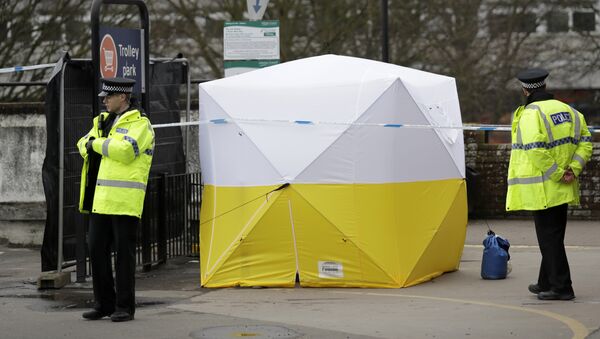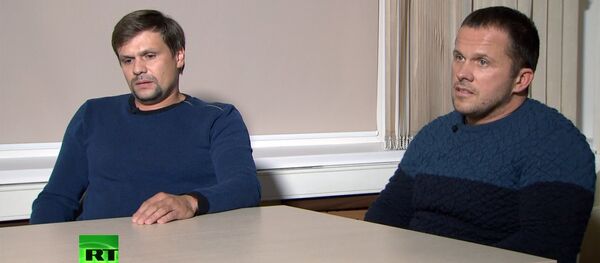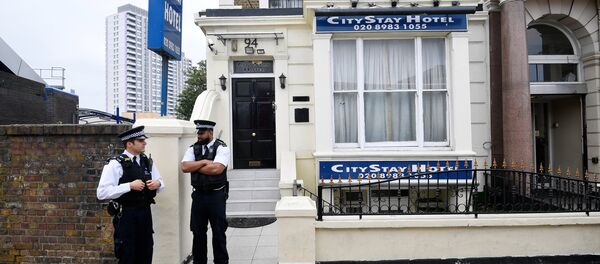According to the foreign minister, London has a "very straightforward" message to Russia — that if it uses chemical weapons, "the price will be too high."
Repeating the unsubstantiated claim that the Russian state was somehow involved in the poisoning of Russian ex-spy Sergei Skripal and his daughter in Salisbury, Hunt suggested that Russia must be wondering whether the Salisbury attack was "smart."
"In the recesses of the Kremlin, if they're reflecting on whether that was a smart thing to do, they must be wondering. … They paid a very high diplomatic price," he said.
Hunt said that he would like to tell Russian President Vladimir Putin that it would be his "choice" whether Russia was on the wrong side of international opinion over the Skripal attack. "They need to understand that it will not be a comfortable place for Russia in the world if this is the way they behave," he noted.
The foreign minister also indicated that London was finding new ways to put economic pressure on Russia.
Sergei Skripal and his daughter Yulia fell victim to a poisoning attack on March 4 in the southern English town of Salisbury. London almost immediately blamed Moscow for the crime, claiming that the Skripals were poisoned by the GRU (Russian military intelligence), which prompted a diplomatic row which culminated in sanctions and the expulsions of dozens of diplomats.
This week, UK bloggers claimed to have proven that Boshirov was really a GRU colonel named Anatoly Chepiga. Russian Foreign Ministry spokeswoman Maria Zakharova dismissed the claims, pointing out that they were not backed up by any evidence. On Thursday, Interpol indicated that it does not have anyone named Anatoly Chepiga on its international most-wanted list. The agency said there are no red notices for Boshirov and Petrov, either. Earlier, London said it had issued European arrest warrants for the pair earlier this month.




